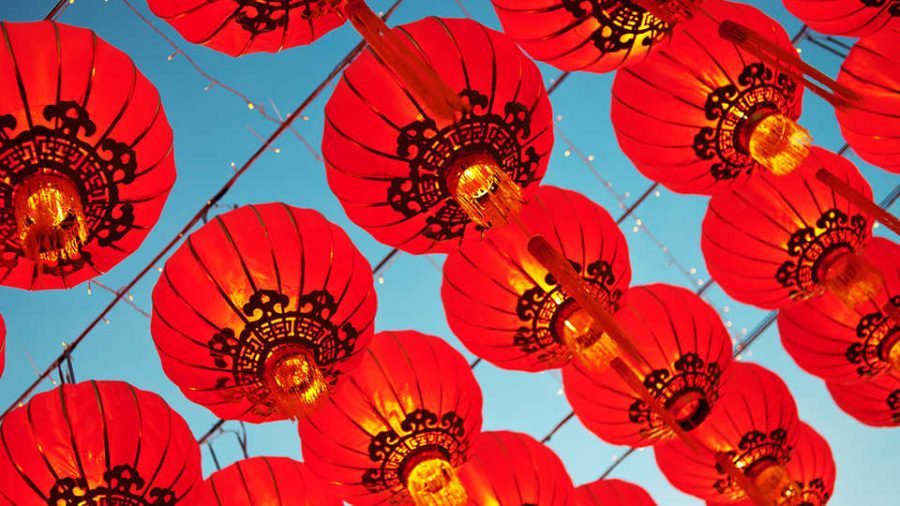Lunar New Year is the most important traditional festival in many Asian countries such as China, Hong Kong, Korea, Taiwan, and Vietnam. This festival is also celebrated by Asians worldwide. There are many traditions to bring luck and prosperity coming into the new year, and each family celebrates differently.
Lunar New Year, also called Chinese New Year or Spring Festival, is the first day of the year on the lunar calendar. Chinese New Year celebrations and traditions come from the fear of the myth and legend of the monster “Nian” (which means “year”). Nian came at the end of each year and attacked the villagers and ate their crops. People used firecrackers, bright lights, and the color red to scare the beast away, which is how most traditions came to be.
“On Chinese New Year’s eve, we eat hot pot and pray to thank our ancestors for protection. On New Year’s day, [my family and I] wake up at 4 am and go to the temple to pray. We thank the gods for a good year and for protecting us. We also pray to wish for good luck in the next year,” Lea Ke, Bay Area resident from Taiwan, says. “We also pass out red envelopes on the night before New Years’. In my family, as long as you’re not married, you can receive a red envelope.”
Hot pot is a popular meal in China/Asia because gathering in a circle represents completion. Praying on New Year is also very popular as people ask their ancestors and the gods for protection and luck. Similar to the Ke family, the Wu family also has traditions to celebrate the new year with traditions to make sure the upcoming year is filled with happiness, luck, and prosperity.
Eric Wu, a Taiwanese citizen, describes, “On New Year’s day, we wear red because it’s a color of good luck and scares away bad fortune. We stay up past midnight on New Year’s Eve and light fireworks and firecrackers… As a kid, my favorite part of Chinese New Year is going on a long break from school. During the break, we can play more with other kids, and we have large family gatherings.”
In the story of Nian, the villagers used to scare Nian away with firecrackers and fireworks because the beast fears loud sounds. In addition to loud sounds, Nian also fears red. Hanging red couplets (春联) and red signs on front doors startle and scare away Nian.
There are also traditions that families practice to get rid of all signs of bad luck and have a fresh start into the new year.
“Before the New Year, we have to do a big house cleaning; we clean the entire house and throw out old clothes and bad things so we can start new and clean going into the New Year.” Karen Lai, Taiwanese-Canadian, explains.
Lai continues, “We wear new clothes on New Year’s day for fresh hopes in the year… My favorite tradition is mahjong (a Chinese strategy game played to bet and win money) because I always win. We also enjoyed New Year’s Eve because on that day, our parents are not supposed to say no or get angry at their children because [it is a taboo that] crying children brings bad luck to a family. There are lots of foods we have to eat on New Year’s Eve to bring luck and fortune in the next year. Our family eats persimmons so that everything goes well. Apples for peace, oranges bring luck, fish represent having extra [money, food, etc.], chicken for family unity.”
Many of these foods represent luck because the sound of the food name sounds like another Chinese word. For example, the Chinese word “apple” (pronounced: píng guǒ) has the same sound as the word “peace” (pronounced píng ān), so apples would mean peace.
“[Lunar New Year] is a time to get together with family to celebrate and feast,” Wu stated.








